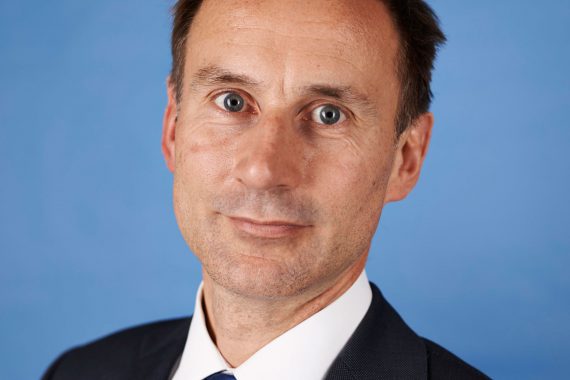Junior doctors are angry because of BMA ‘misrepresentation’, claims Hunt

Health secretary Jeremy Hunt has blamed junior doctor anger on ‘misrepresentation’ of his words by the BMA in the media.
Speaking on the BBC’s The Andrew Marr Show on Sunday, Mr Hunt argued that his contract reforms were not to blame for junior doctors going on strike again this Wednesday, but rather the BMA for ‘refusing’ to agree to reduce premium pay for junior doctors for working on Saturdays.
On the show, Mr Hunt came under pressure from host Mr Marr who argued he had made it ‘a particularly bitter dispute’ by his ’poisonous misrepresentation’ that ’11,000 extra deaths at the weekend are connected with poor staffing by junior doctors in hospitals’.
Mr Marr quoted NHS England medical director Sir Bruce Keogh who has said it would be ‘rash and misleading’ to claim those deaths were avoidable and pressed Mr Hunt to say these were not the fault of junior doctors.
But Hunt maintained that staffing levels were an important part of the issue, across junior and senior doctor grades, and said striking doctors were missing the ‘big picture’ by not seeing the ‘opportunity’ for the NHS to give ’the safest, highest quality health care anywhere in the world’.
Telling Mr Hunt he had ’absolutely outraged junior doctors’, Mr Marr went on to read out letters from junior doctors that said:
- Mr Hunt’s implication they were to blame for deaths had made her feel ’demoralised, insulted and cheap’ and on the brink of leaving medicine;
- junior doctors were ‘certain that patients are going to die’ if doctors are ‘spread even more thinly over seven days’;
- a third doctor said Mr Hunt was ‘driving away a whole generation of doctors’.
Mr Hunt said their anger was ’incredibly disappointing’ but based on the ’totally irresponsible way that the BMA has behaved in refusing to sit down and talk about how we can improve patient care and spreading misinformation’.
He said: ’One of the reasons for that anger, and there is anger there, is because they were told by the BMA that their pay was going to be cut – it isn’t. They were told that they were going to be asked to work longer hours – they aren’t.
’We are actually bringing down the number of hours of work – and if you are told by your union that the health secretary wants to do these things, of course you feel devalued.’
He added that his words are ’distorted by the BMA which is one of the cleverest trade unions in the book, because they know that in any argument between doctors and politicians, the public are going to side with the doctors.’
Mr Hunt said that he thinks that history will prove the Government right, saying that ‘in the end I think doctors too will say, well you know, there was a big argument over it but it was the right thing for the NHS’.
Responding to the comments, BMA junior doctor committee chair Dr Johann Malawana said: ’The BMA has been clear throughout this process that we want to reach a negotiated agreement – no doctor wants to take industrial action, and our door has always been open to talks. But the government is putting politics before reason, and their continued threat to impose a contract that junior doctors have roundly rejected leaves us with no option.
’Junior doctors already work around the clock, seven days a week and they do so under their existing contract. If the government want more seven-day services then, quite simply, they need more doctors, nurses and diagnostic staff, and the extra investment needed to deliver it.’
Pulse October survey
Take our July 2025 survey to potentially win £1.000 worth of tokens











